Friday, July 31, 2020
Wednesday, July 29, 2020
New SOS Fundraising ACS Facebook Group
The American Cancer Society needs our help. For the first time in their history they are in danger of not being able to fulfill their mission.
Just as Dr. Gordy Klatt did in 1985, the Relay For Life of Tacoma invites you to join our volunteer-driven fundraising push to save our services and vital research.
Will you join together with us to answer the American Cancer Society’s SOS call? Join the new SOS Fundraising ACS Facebook Group.
Commentary in Barron's highlights plight of ACS
Author supports increase in federal charitable tax deduction to increase donations to non-profits
A commentary by a professor at Duke and Columbia universities focuses on the financial crisis in which non-profits find themselves, including ACS, due to COVID-19.
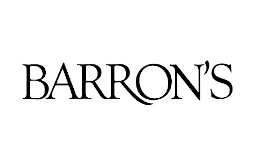
Titled "Hard-Hit Nonprofits Face Rising Demand, Less Funding," the commentary by Stanley S. Litow, says:
"On a national level, the American Cancer Society has seen a spike in demand for their services, which include a hotline and advice for cancer victims,concurrent with a steep decline in funding. I recently interviewed CEO Gary Reedy, who said they have already laid off roughly 1,000 people, about 25% of their workforce. He expects a revenue decline of close to $200 million. These cuts, he said, would impact their ability to continue their significant investment in cancer research, which totaled nearly $150 million in 2018."
The author also notes that: "A June survey by the Independent Sector showed that 83% of these organizations have already seen a marked reduction in their revenue. Nearly two-thirds of 125 agencies surveyed by the Human Services Council of New York believe they will have to reduce services to those most in need as a result of budget shortfalls, and 70% expect to be laying off staff. State and local budget shortfalls will only increase the risks."
Litow, who also serves as IBM’s vice president of Corporate Citizenship & Corporate Affairs and president of IBM’s Foundation, advocates for increased philanthropic support in the form of more generous matching gift programs, incentives for skill-based volunteering, expanding no-interest lending, and an increase in the federal charitable tax deduction to boost donations.
*Shared from MySocietySource and read the full commentary.
Tuesday, July 28, 2020
Useful guidance as you consider when and how to safely resume cancer screening
If you have signs or symptoms of cancer, you should consult your doctor or a health provider right away
At the onset of the COVID-19 pandemic, elective medical procedures, including cancer screening, were largely put on hold to prioritize urgent needs and reduce the risk of the spread of COVID-19 in healthcare settings. One consequence of this has been a substantial decline in cancer screening.
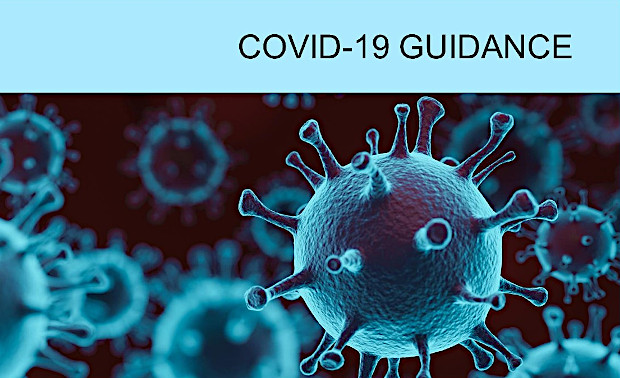
As states and other authorities re-open businesses and ease restrictions, many healthcare facilities are starting to offer elective procedures again, including cancer screening. Restarting cancer screening requires careful consideration of the risks and benefits of screening, along with ensuring safety for both patients and healthcare personnel.
Decisions about restarting screening depend on many factors, and they may not be the same for every person. They will likely vary by community while the pandemic continues.
Regular cancer screening is still important
If you had an appointment for screening that was postponed or canceled, talk to your healthcare team about when to reschedule. Your provider can discuss balancing the risks and benefits of being screened now or postponing for a later date, taking into account your personal and family history, other risk factors, and the timing of your last screening test.
It is also important to keep in mind that we’re focusing here on cancer screening. Screening tests look for cancer in people who don’t have symptoms. These tests are different from tests your doctor might order if you have symptoms that could be from cancer. If you have signs or symptoms that might be from cancer, for instance, a lump in the breast or blood in the stool, you should discuss this with your provider right away, as you will need exams or tests that evaluate those particular signs and symptoms.
You may have options for screening
Screening recommendations are general recommendations for large groups of people, but there may be flexibility for some screening tests. For example:
Many women get cervical cancer screening every year. However, no organization recommends cervical cancer screening with a Pap test any more often than every 3 years, and if an HPV test is used, no more often than every 5 years. If you have had normal test results in the past, getting cervical cancer screening at this time is not urgent.
Many women get an annual mammogram for breast cancer screening. However, leading organizations that issue screening guidelines recommend that average risk women ages 55 and older can be screened every two years. If you are 55 or older and had a normal mammogram within the last year, you could choose to have your next mammogram up to 24 months after your last one.
There are several options for colorectal cancer screening for people at average risk. For example, stool tests, such as fecal immunochemical testing (FIT) or a stool DNA test (such as Cologuard), can be done safely at home. If the stool test result is positive, you will need a colonoscopy, and it will be important to talk with your doctor about the safest way to proceed with this. Colonoscopy as a screening test is still an option, but it may be harder to get an appointment now compared to before the COVID-19 pandemic.
Your health care provider can help you determine what screening schedule and which screening tests are best for you at this time.
Screening needs to be done safely
As your regular facility for health care returns to providing cancer screening, it’s important that it is done as safely as possible. The U.S. Centers for Disease Control and Prevention (CDC) has recommendations for healthcare facilities to reduce the risk of COVID transmission:
- Screening centers should be available to answer questions from patients via phone or web portal before and/or after the screening procedure.
- Patients should be pre-screened for COVID-related symptoms before screening appointments.
- Scheduling of appointments should allow for physical distancing between patients, and longer appointment times, if needed, to avoid crowding in waiting rooms and patient care areas.
- There should be limitations on visitors other than patients and/or their caregivers into the screening facility.
- If not done in front of you, the screening center should be able to tell you how often equipment and surfaces are disinfected and cleaned.
- Everyone, including patients and staff, should wear a face covering or face mask, where appropriate. There should be frequent handwashing and use of hand sanitizer by staff, patients, and visitors.
Every community has its own unique situation and will need to rely on the judgment of the health care professionals and leaders in the community to make the best decisions possible.
This information is intended to help you understand the importance of returning to regular cancer screening as soon as it is safe to do so. At the same time, it’s important to remember that if you have signs or symptoms of cancer, or if you have additional risk factors that put you in a high-risk group, you should consult your doctor or a health provider right away for guidance.
For more about cancer and COVID-19, visit cancer.org/coronavirus.
As always, ACS is available through live chat or by phone anytime, day or night, at 1-800-227-2345.
PLEASE NOTE: This information was written by Laura Makaroff, DO, senior VP, prevention and early detection; Durado Brooks, MD, MPH, VP, prevention and early detection; and Bob Smith, PhD, senior VP, cancer screening, in collaboration with cancer.org's medical content team. For a link to this story on cancer.org, where it originated, click here.
*Shared from MySocietySource.
Monday, July 27, 2020
#ShareTheLight raised nearly $200,000! Miss the live event? Watch a replay.
Help us keep up the momentum on social media
Our star-studded #ShareTheLight live event raised just under $200,000 across web, social, mobile, and email! If you missed it, you can watch a replay here. You can help us reach our goal of raising $512 million by joining the #ShareTheLight Challenge. This challenge will represent both the eternal flame in the fight against cancer and grow the impact of individual donations through donation matches. For more information, visit cancer.org/sharethelight.
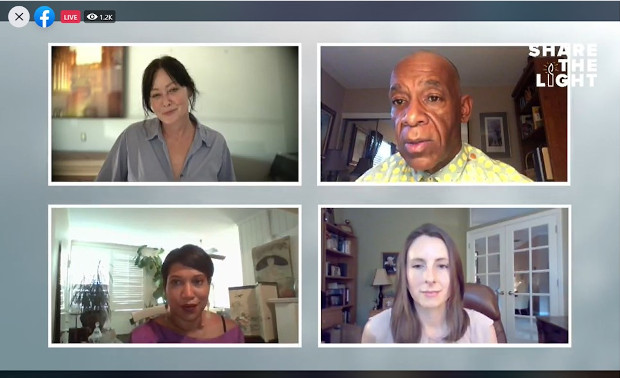
The July 16 live event was just the launch of our #ShareTheLight social media campaign, and we need your help to keep up the momentum on social media. We’re asking every staff member to help. Here's how:
- Share a photo or video with your light – a match, candle, luminaria – to honor a survivor and then post it to your social circle. Challenge your friends and family members to share the light and make a donation. Be sure to tag the American Cancer Society (@AmericanCancerSociety) and use the hashtag #ShareTheLight. Any social site is fine, but we raise the most money on Facebook.
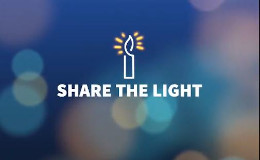
- Sample video script: I’m lighting this match in honor of my best friend’s dad Scott Dietrich who lost his battle to cancer and for Lori Zenker who currently got word she is officially cancer free, but is still actively recovering. It’s so important to put faces and names to this horrible disease. That is why I’m sharing the light and donating $50 to the American Cancer Society in Scott and Lori’s honor. I challenge Natalie Ault, Jordy Anderson, and Lukas Metz to Share the Light in the fight against cancer and match my donation!
- Sample social post: Cancer affects us ALL. I nominate @NatalieAult, @JordyAnderson, and @LukasMetz to donate to @AmericanCancerSociety and post how you are going to #ShareTheLight in honor of those who have fought, are fighting, and will fight cancer in their lifetime.
Thank you!
*Shared from MySocietySource.
Sunday, July 26, 2020
Gary Reedy comments on the passing of civil rights icon John Lewis
Gary Reedy, CEO of ACS and ACS CAN, made the following comments today on learning of the death of civil rights champion and U.S. Congressman Rep. John Lewis from pancreatic cancer:
“We are incredibly saddened by the news of Representative Lewis’s passing. On behalf of the entire American Cancer Society and American Cancer Society Cancer Action Network family, heartfelt condolences go out to Rep. Lewis’s son John-Miles and the entire Lewis family. While we mourn his loss, we celebrate the monumental gift of his life. John Lewis was a pillar of the civil rights movement and an example of how to live a life of service.
“Throughout his life, the civil rights icon fought for freedom, equality, and human rights across countless communities, including for cancer patients, survivors, and their families. He was fiercely committed to racial and social justice, and as part of that work, to making sure access to health care was a basic human right.
“In addition to playing a pivotal role in the civil rights movement, Rep. Lewis had long been a champion of cancer issues from his work on the Atlanta City Council throughout his time in Congress. The congressman recognized racism is a public health issue and was a vocal advocate for the passage of critical patient protections in the Affordable Care Act.
“This year, an estimated 1.8 million Americans, including more than 55,000 Georgians, will be diagnosed with cancer. On behalf of Rep. Lewis and all those who will be diagnosed this year, we will continue to support research that leads to new treatments and therapies and work with our lawmakers at the federal and state level to pass measures that move us closer to a world without cancer.
*Shared from MySocietySource.
Parent's Day
Parent’s do so much for up. Today, on Parent’s Day, appreciate, thank, honor, and remember your parents for all they have done for you.
Saturday, July 25, 2020
Volunteer Community now live on cancer.org
The new Volunteer Community is now live on cancer.org. This is an online platform for all current and potential volunteers to easily search, view, select, and then sign up for volunteer opportunities with ACS. This platform is part of our larger organizational strategy to manage relationships using Salesforce.
The Volunteer Community is the front door for volunteers to complete training and compliance requirements and track their volunteer hours and recent volunteer history. Volunteers will access the Volunteer Learning Center through the Volunteer Community.
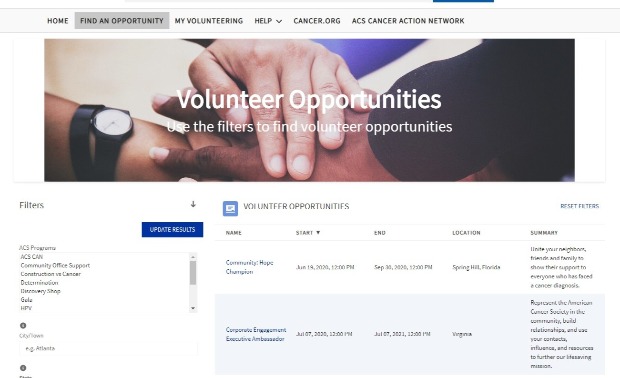
The American Cancer Society's ability to provide available volunteer opportunities is dependent on staff posting available and needed opportunities. This is an opportunity for our organization to offer new and different volunteer opportunities – including in-person and virtual. Volunteers are encouraged to work closely with their staff partners to help pivot to virtual experiences, develop new roles to post on the volunteer community, and find ways to share this new platform with others in their community.
The Volunteer Community Video Guide offers an overview of the basic navigation of the site. If you have any additional questions, please contact the Volunteer Care Team at acsvolunteercare@cancer.org.
*Shared from MySocietySource.
ACS issues updated guideline for HPV vaccination
Starting HPV vaccination at age 9 or 10 is preferable; vaccinating people older than 26 is not recommended
The American Cancer Society has updated its guideline for human papilloma virus (HPV) vaccination. New recommendations are for healthcare providers to routinely offer the HPV vaccine series to boys and girls between ages 9 and 12 (versus the previous 11 or 12).
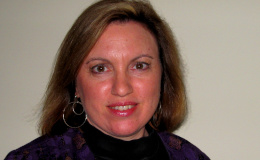
“We’re seeing evidence that starting vaccination at age 9 or 10 has potential benefits that are expected to lead to higher vaccination rates, resulting in increased numbers of cancers prevented compared to starting at ages age 11 and 12,” said Debbie Saslow (pictured here), PhD, managing director, HPV & GYN Cancers and lead author of the 2020 ACS Guideline Update. “It’s for that reason we felt it was important to say that starting at age 9 or 10 is more than OK; it’s preferable to achieve the full cancer-preventing potential of this vaccine.”
For most children younger than 15, HPV vaccination is a series of 2 shots. Children who have weakened immune systems and those who get the first dose at age 15 and older need 3 shots. For any kids who haven’t completed the series, the ACS guideline recommends healthcare providers offer “catch-up” HPV vaccination up to age 26. The ACS does not recommend vaccination after age 26 because of its minimal effectiveness. There's also a global shortage of HPV vaccine that is expected to continue for the next several years.
The full updated guideline was published online today in CA: Cancer Journal for Clinicians, our flagship medical journal, along with an informational patient page.
If you would like to share this news, direct people to cancer.org.
Why HPV vaccination is important
Almost everyone who is not vaccinated will get HPV at some time in their lives, though most will never know it. The infection usually goes away on its own and doesn’t cause health problems. But in some cases, HPV doesn’t go away. Some types of HPV can cause genital warts, while other types can lead to cancer. The HPV vaccine helps prevent infection by both of these types of HPV.
Most HPV infections that lead to cancer can be prevented by vaccinating children and teens on time. HPV vaccination helps protect girls from cancers of the cervix, vagina, vulva, anus, and throat. For boys, it helps protect them from cancers of the penis, anus, and throat.
“The American Cancer Society has made preventing HPV-related cancers through vaccination one of our highest priorities,” said Debbie. “When we combine improved vaccination rates with the screening and treatment of precancers in the cervix, we have the potential to make history by eliminating cervical cancer.”
“The combination of HPV vaccination and cervical cancer screening has the potential to prevent tens of thousands of cancers caused by HPV each year in this country and to eliminate cervical cancer as a public health problem in the coming decades,” conclude the authors. “Vaccination of all children between ages 9 and 12 years will prevent >90% of the cervical, oropharyngeal, anal, vaginal, vulvar, and penile cancers that are caused by HPV and, combined with screening and the treatment of cervical precancers, can lead to the first elimination of a cancer in history.”
Helping more people get HPV vaccinations on time
These guideline changes were made to help more people get their HPV vaccinations when the vaccine is most effective and before they are exposed to the virus. “Research is starting to show that more parents agree to vaccination when it starts between ages 9 and 10. Younger children are also more likely to complete the series than those who start between ages 11 and 12,” said Debbie. Children who are vaccinated on time are also likely to have a stronger immune response.
History of the guideline
ACS first issued a guideline for routine use of the HPV vaccine in 2007, with an update issued in 2016. Until today, we recommended that routine HPV vaccination for girls and boys begin at age 11 or 12, but noted that that the vaccination series could start as early as age 9.
Today's update comes from ACS’s Guideline Development Group’s review and adaptation of the 2019 update from the Advisory Committee on Immunization Practices, the main source for U.S. immunization policy and part of the U.S. Centers for Disease Control and Prevention.
RECAP
Age to begin vaccination
- Girls and boys should get 2 doses of the HPV vaccine at ages 9 to 12 years.
Qualifying Statement: Routine HPV vaccination between ages 9-12 years is expected to achieve higher on-time vaccination rates, resulting in increased numbers of cancers prevented. Health care providers are encouraged to start offering the HPV vaccine at age 9 or 10 years.
Catch-up vaccination
- Teens and young adults up to age 26 years who have not received the HPV vaccine, or have not gotten all their doses, should get vaccinated, receiving 3 doses if the first shot was given at age 15 or older. Vaccination of young adults will not prevent as many cancers as vaccination of children and teens. Effectiveness decreases dramatically by age 18.
Qualifying Statement: Providers should inform individuals aged 22-26 that vaccination may be less effective in lowering their cancer risk.
Adult vaccination
- The ACS does not recommend HPV vaccination for persons older than 26 years.
Qualifying statement: ACS does not endorse shared clinical decision-making for adults ages 27-45 due to the low effectiveness and low cancer prevention potential of vaccination in this age group, the burden of decision-making on patients and clinicians, and the lack of sufficient guidance on selection of individuals who might benefit.
*Shared from MySocietySource.
Friday, July 24, 2020
International Self Care Day
On #InternationalSelfCareDay we want to remind our caregivers to take care of themselves. Self-care is any activity that we do to take care of our mental, emotional, or physical health. Good self-care is key to improved mood and reduced anxiety. What is one self-care thing you can do today?








